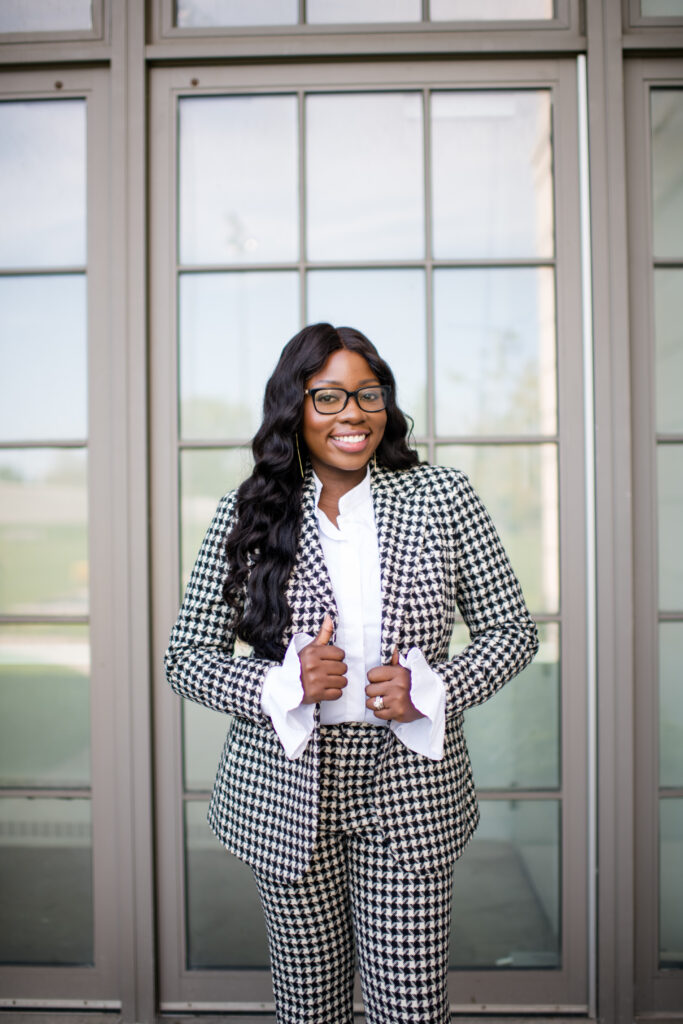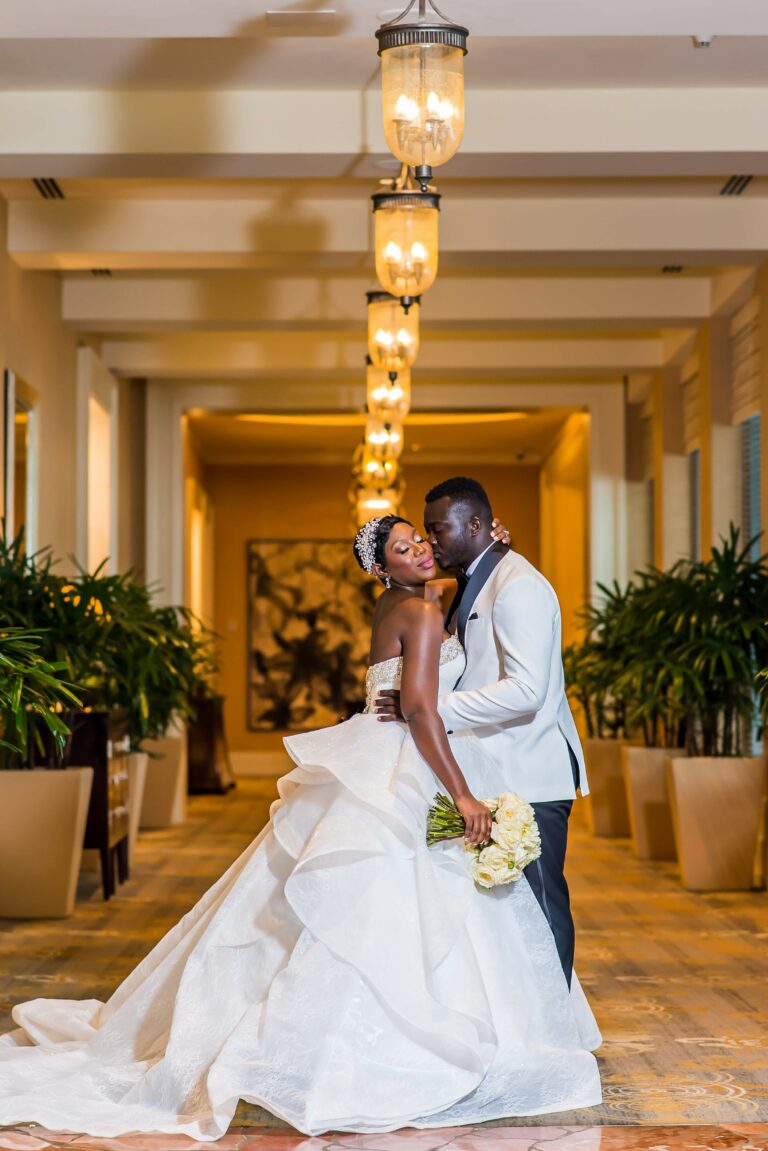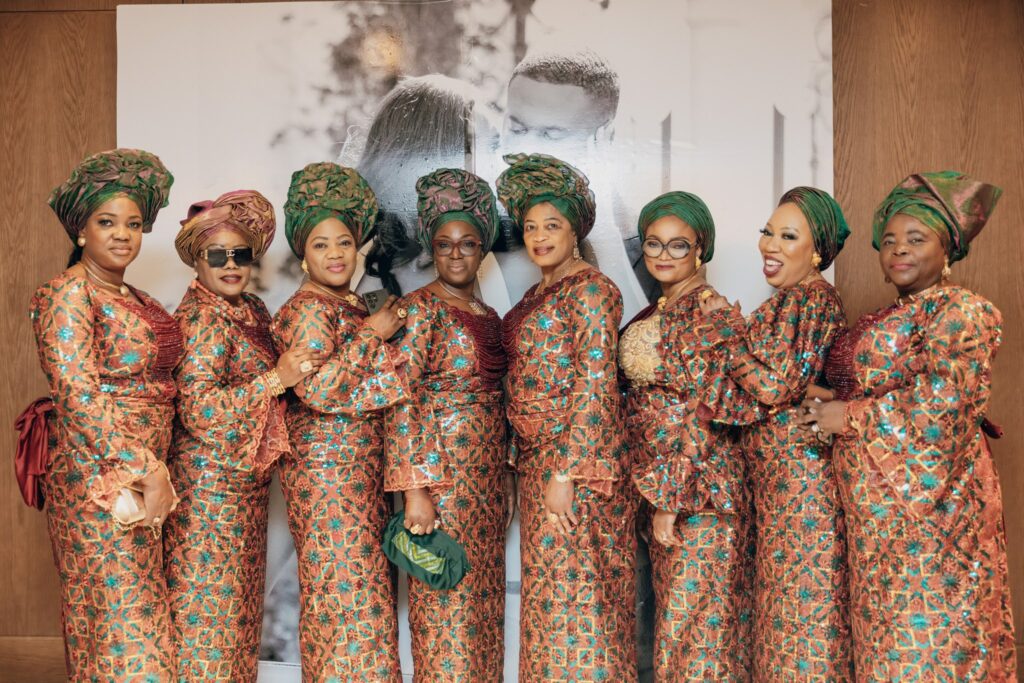
Nigerian weddings are renowned for their vibrancy, rich cultural heritage, and grandeur. From the elaborate ceremonies to the joyous celebrations, these weddings are a true reflection of Nigeria’s diverse cultural tapestry. Among the many traditions that make Nigerian weddings unique, guest attire holds a special place. It is not just about looking good; it is about expressing cultural pride, showing respect, and celebrating unity. In this blog post, we will explore the significance of guest attire in Nigerian wedding ceremony traditions and provide insights and tips for choosing the perfect outfit.
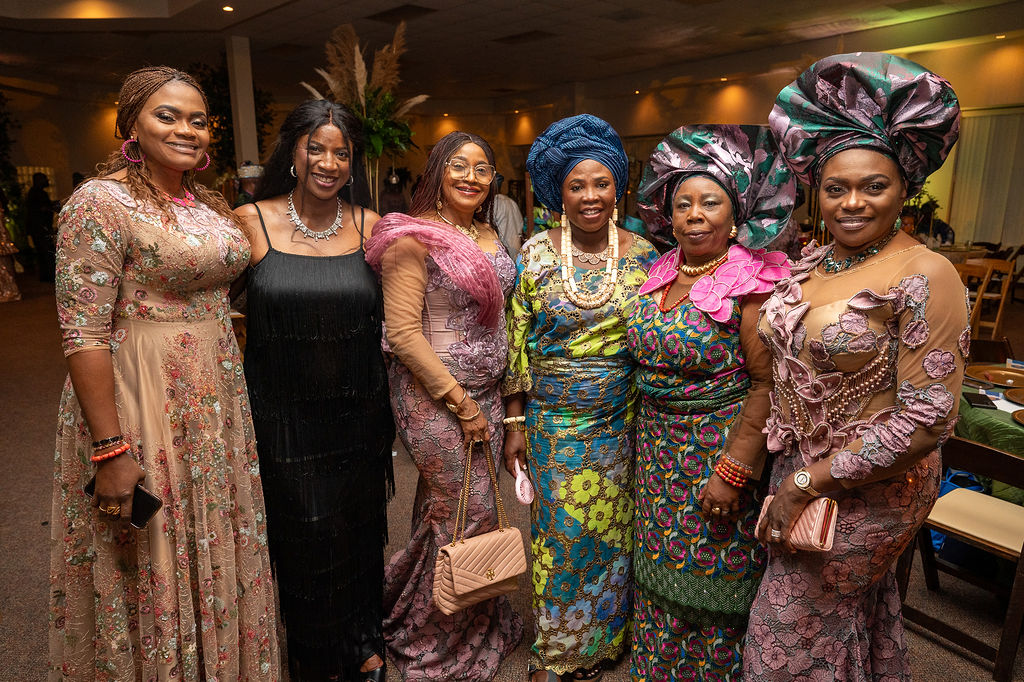
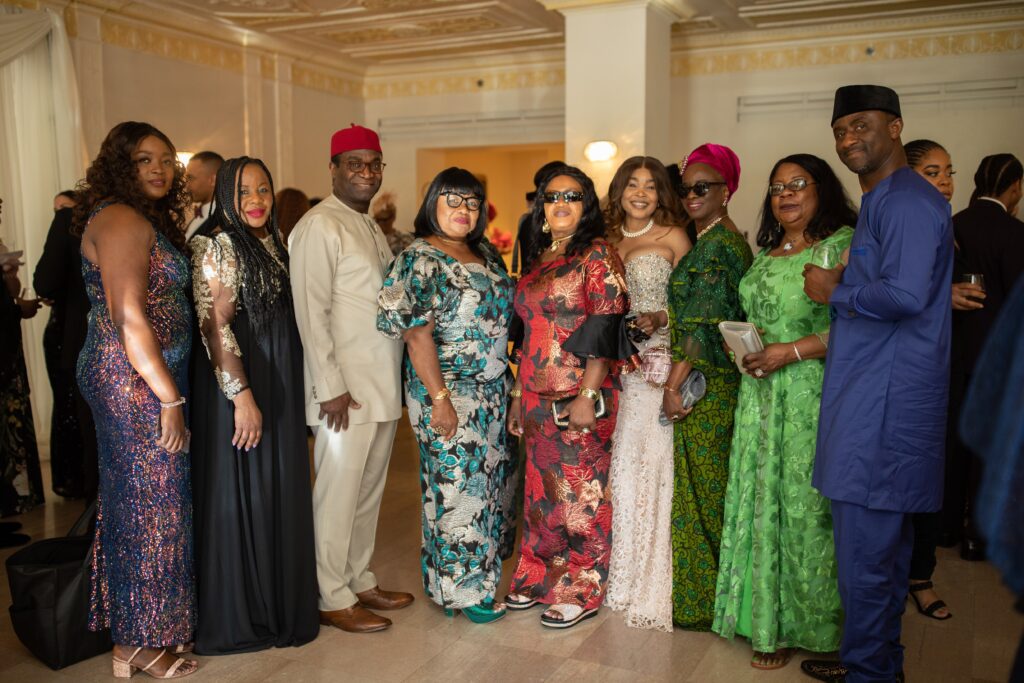
Cultural Significance of Guest Attire
Guest attire at Nigerian weddings is a vital aspect of the celebration. It serves as a powerful expression of cultural heritage and personal style. The outfit you select honors the significance of the event and demonstrates your support for the union. The vibrant colors, intricate designs, and symbolic accessories all contribute to the festive atmosphere, creating a visual feast that reflects the joyous spirit of Nigerian weddings.
For instance, wearing traditional attire like agbada or iro and buba showcases a deep connection to one’s roots and ancestral heritage. It signifies pride in Nigerian culture and a commitment to preserving these traditions for future generations. Moreover, the collective display of traditional attire fosters a sense of unity and belonging among guests, enhancing the overall celebratory experience.
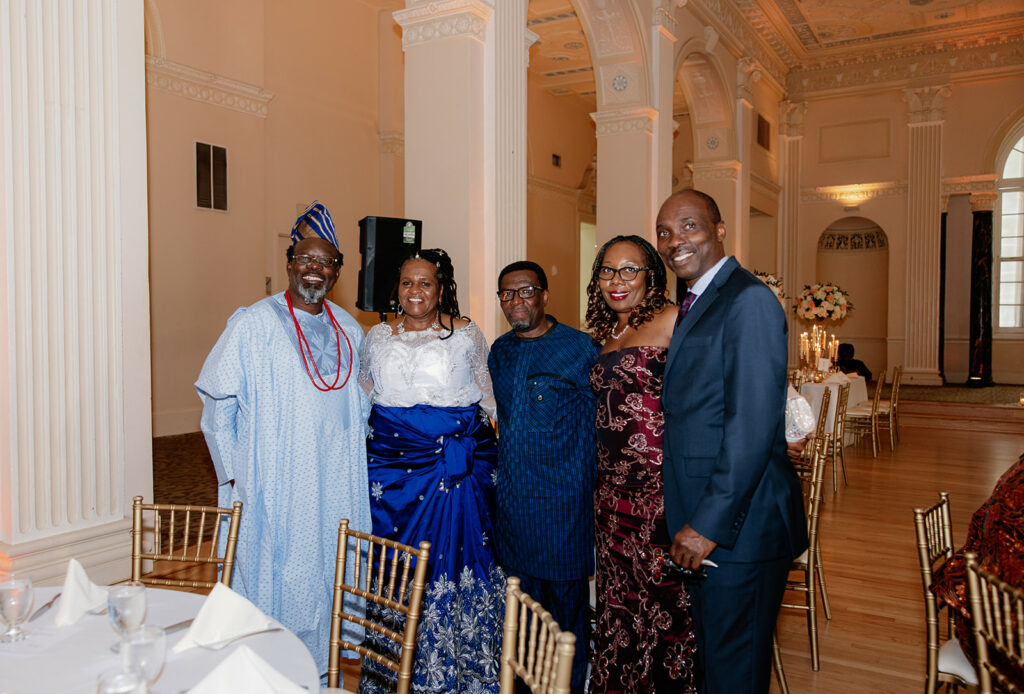
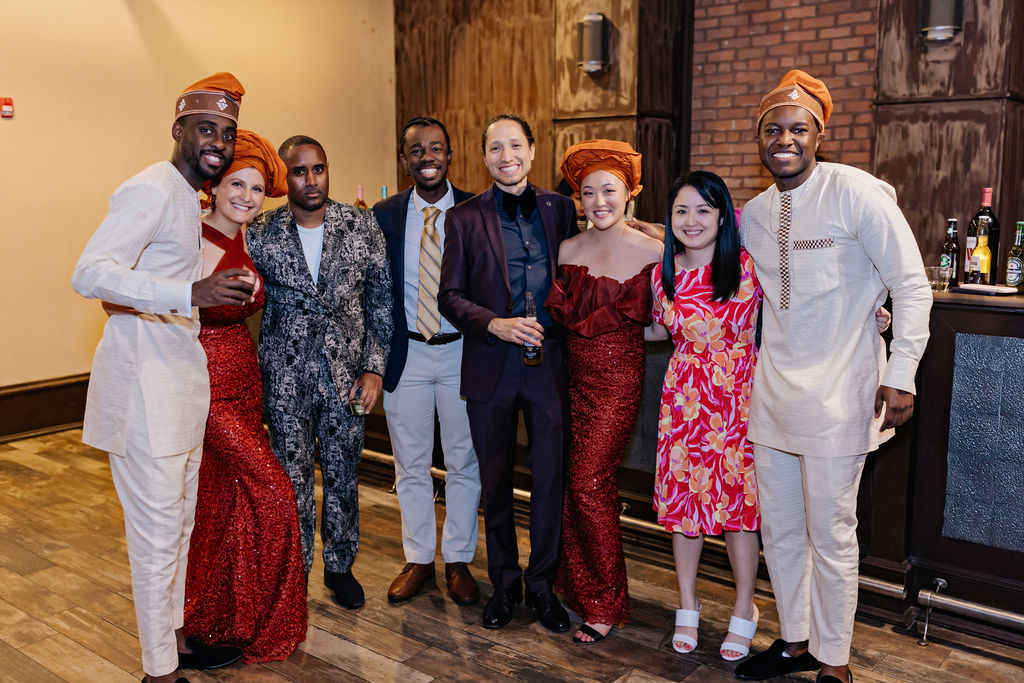
Types of Nigerian Wedding Guest Attire
Overview of Traditional Attire
Nigerian wedding guest attire encompasses a wide range of traditional outfits, each with its own unique significance and style. Here are some popular choices:
- Agbada: This flowing, robe-like outfit is worn by men. It features intricate embroidery and is usually paired with matching trousers and a cap.
- Iro and Buba: A classic choice for women, this ensemble consists of a wrap skirt (iro) and a loose-fitting blouse (buba). It is often complemented by a gele (headwrap) and ipele (shoulder sash).
- Gele: The gele is a distinctive headwrap worn by women. It adds a touch of elegance and sophistication to any outfit.
- Ankara: Ankara fabric, known for its vibrant prints and patterns, is a less popular choice for weddings that both men and women wear. It can be tailored into various styles, from dresses to shirts and trousers.
- Isiagu: Isiagu is a traditional Igbo attire worn by men, characterized by its lion head pattern and often worn with a cap and beads.
- Lace: Lace fabrics are often used to create stunning and elaborate outfits for weddings. They are known for their delicate patterns and luxurious appearance.
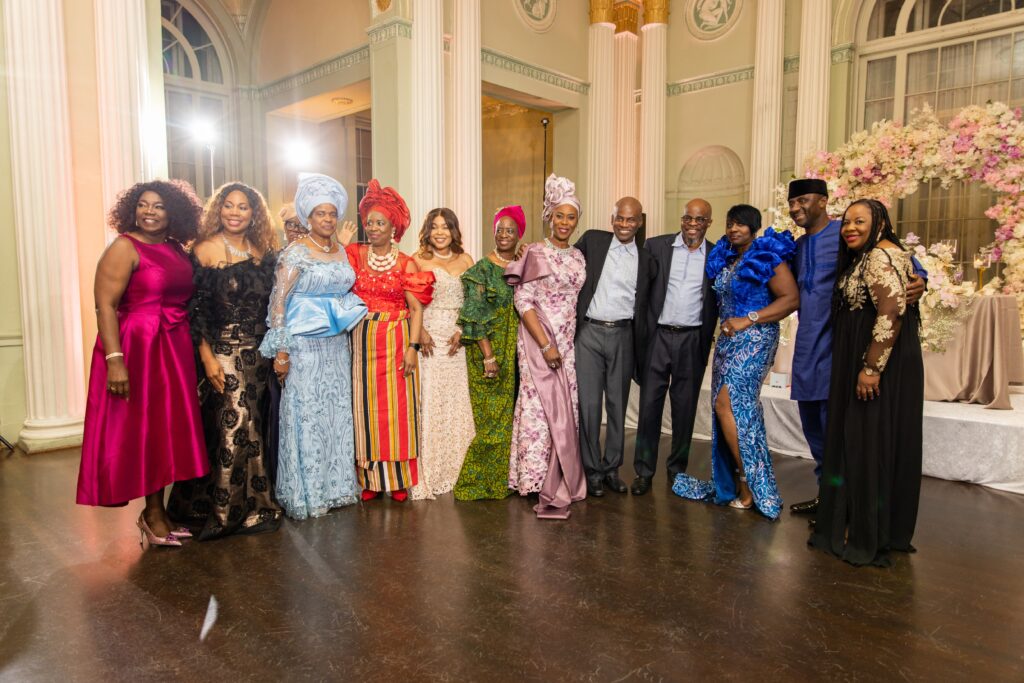
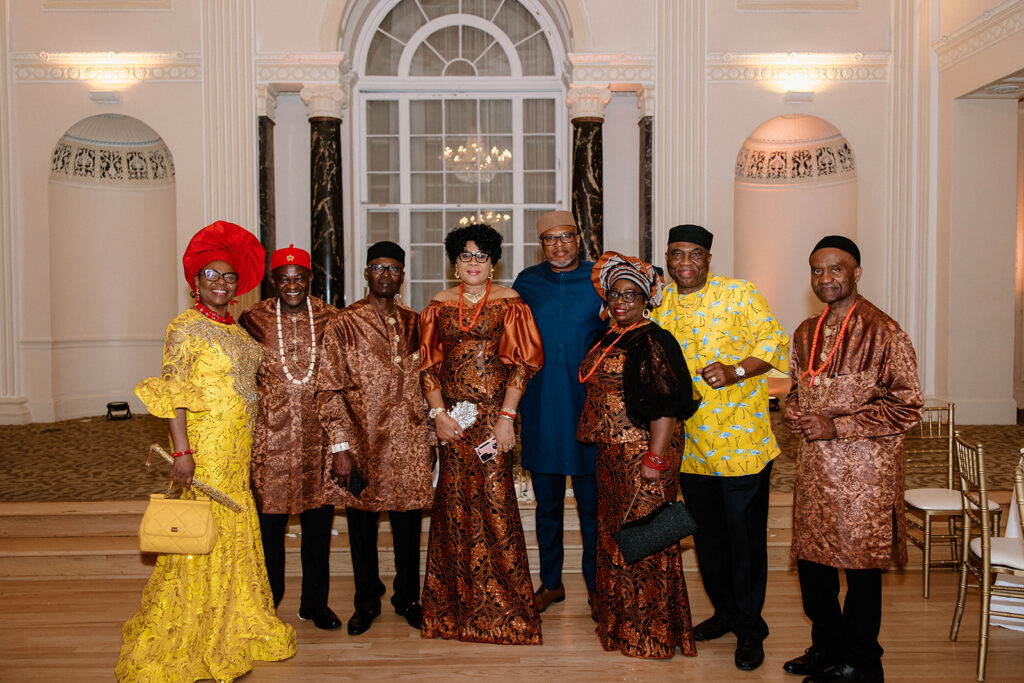
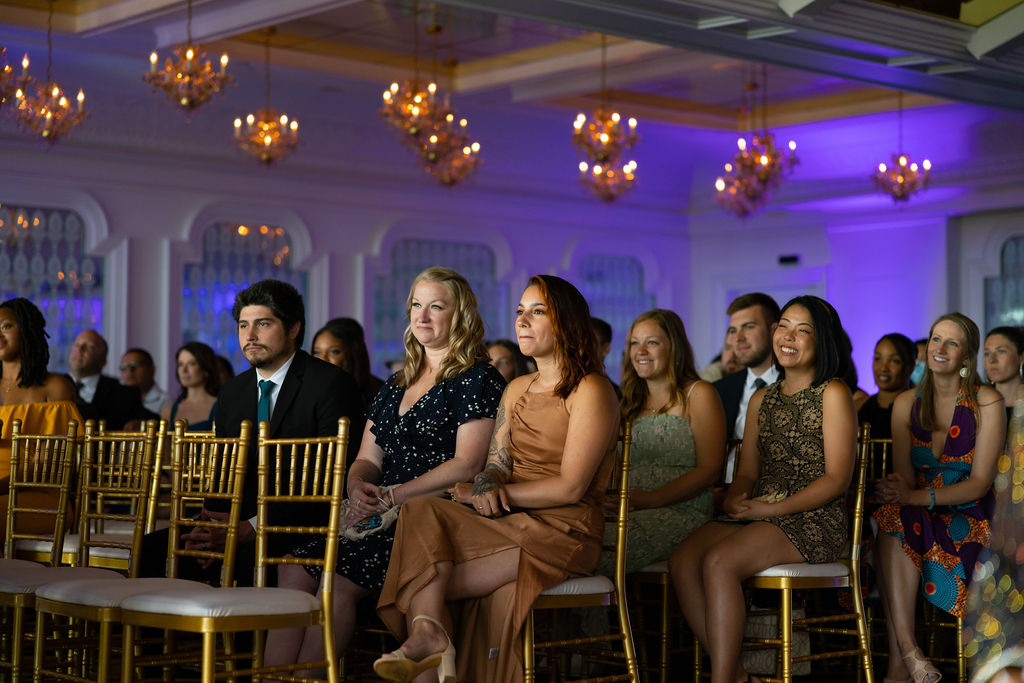
Influence of Contemporary Fashion
In recent years, contemporary fashion has made its mark on traditional Nigerian wedding guest attire. Designers are blending modern styles with traditional elements, resulting in innovative and stylish outfits. For example, you might see agbada outfits with sleek, tailored cuts or iro and buba ensembles with trendy, off-shoulder blouses. This fusion of old and new allows guests to embrace their cultural heritage while staying fashion-forward.
American Attire Options
While traditional Nigerian attire is encouraged, guests who prefer American attire can also participate in the celebration. It is essential to adhere to the specified dress code, whether it is black tie, semi-formal, or another style. Choosing elegant and respectful outfits that align with the wedding’s theme and formality ensures that all guests feel included and appropriately dressed.
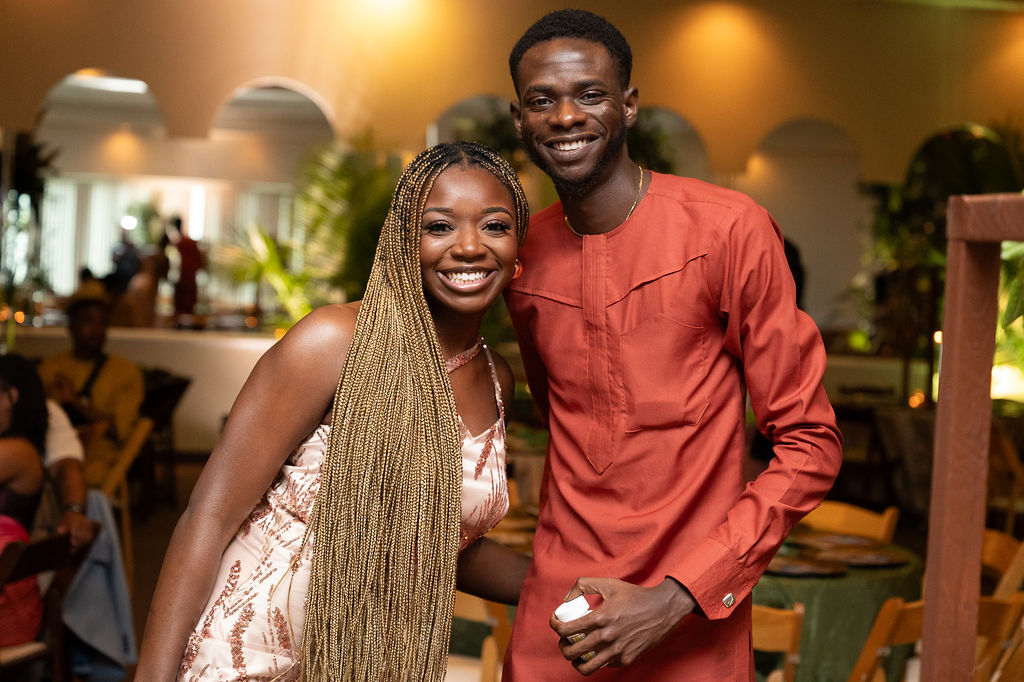
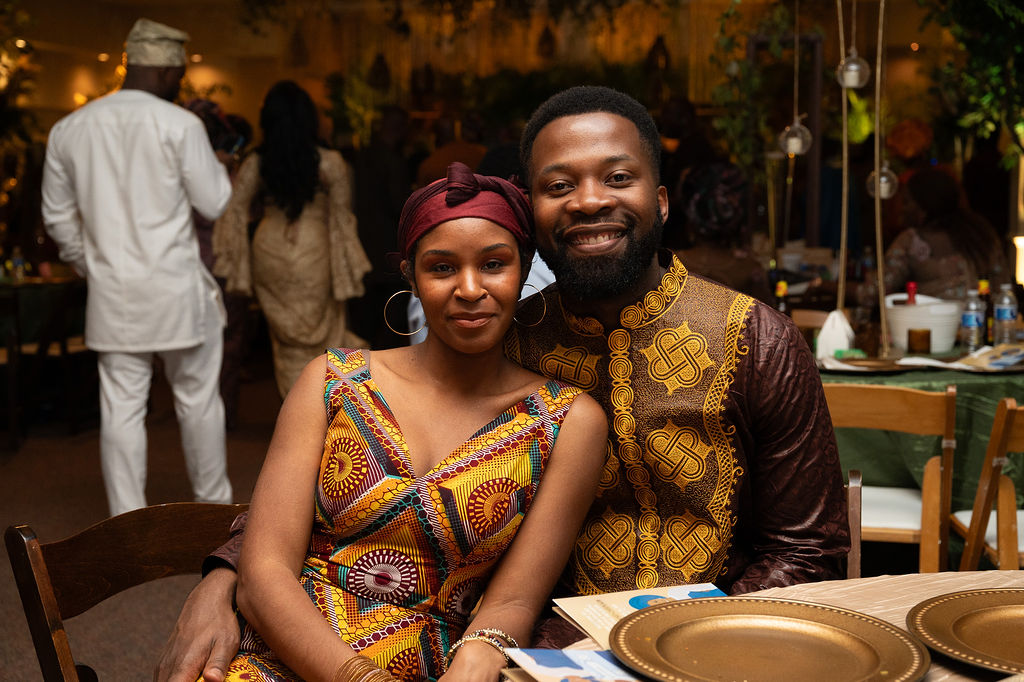
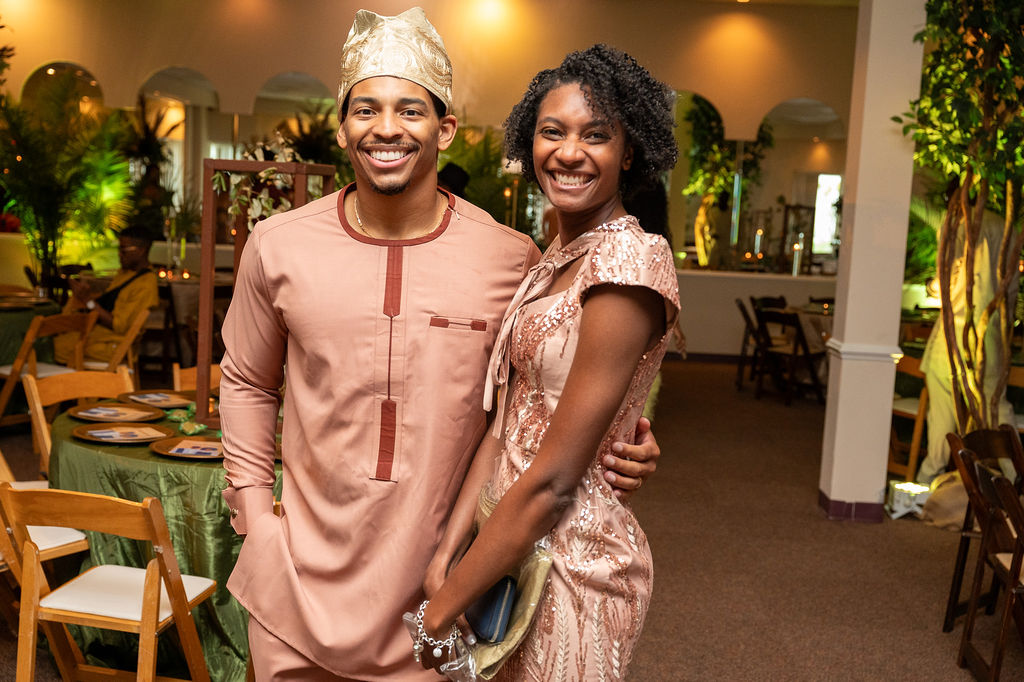
Planning and Coordinating Guest Attire
Selecting Appropriate Attire
When selecting your outfit as a wedding guest, consider the couple’s preferences, the wedding theme, and any specific dress code or color palettet mentioned in the invitation.
Coordination for a Cohesive Look
To achieve a cohesive look among guests, coordination is key. The couple may provide fabric samples or color guidelines to help guests choose outfits that complement the overall wedding theme.
Importance of Accessories
Accessories play a crucial role in completing the wedding guest look. Popular accessories for Nigerian wedding guests include gele, coral beads, gold jewelry, and sparkly handbags. These elements can enhance both traditional and modern outfits, adding an extra layer of elegance and cultural significance. For example, a beautifully tied gele can elevate a simple dress, while statement jewelry can complement the intricate details of a lace outfit.
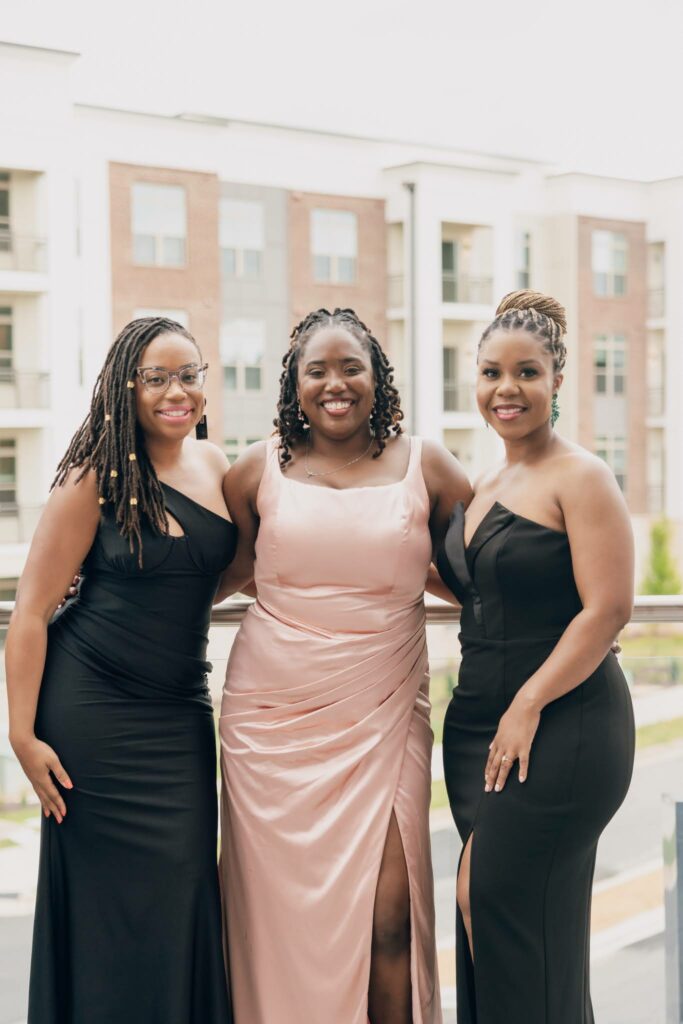
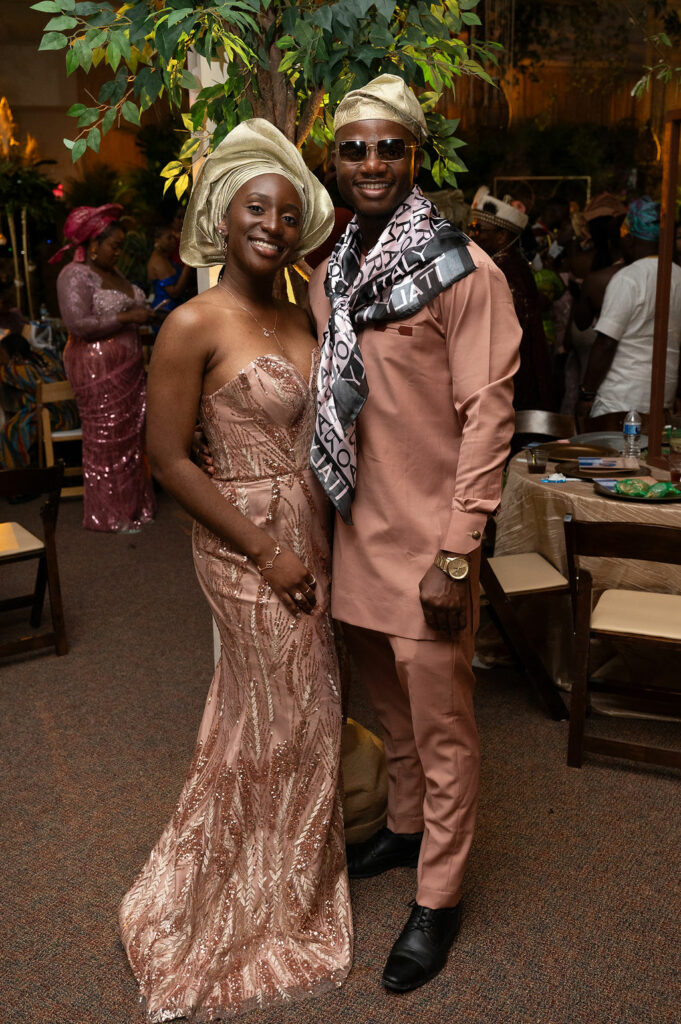
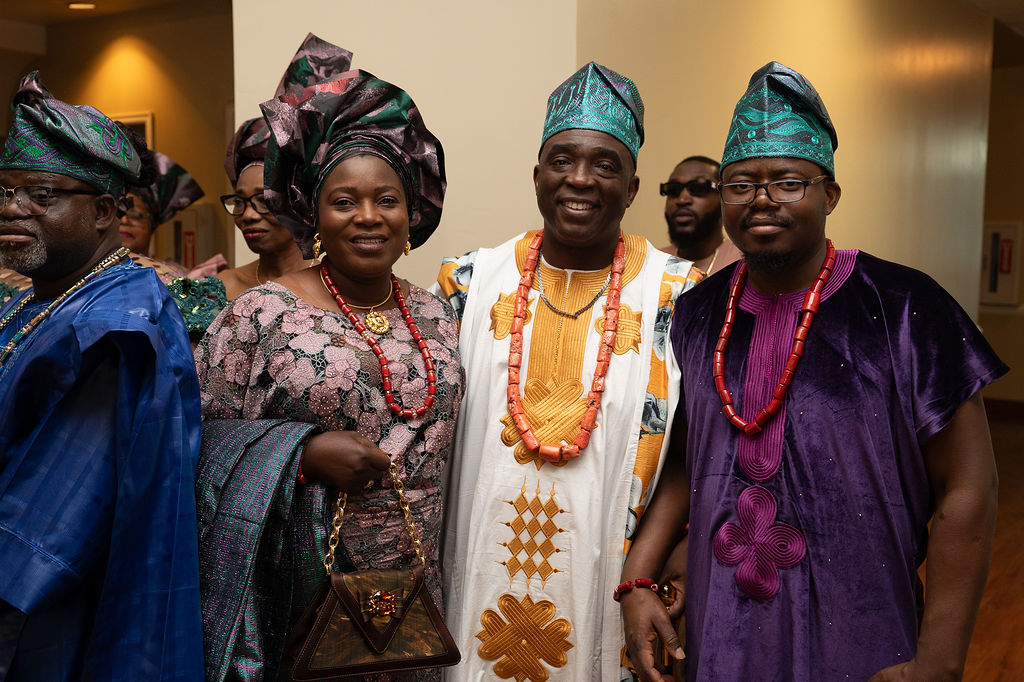
Challenges and Solutions in Choosing Guest Attire
Common Challenges
Selecting the perfect wedding guest attire can be challenging. Common issues include finding the right fabric, ensuring the outfit fits well, and balancing tradition with personal style.
Solutions and Tips
To overcome these challenges, start planning your outfit early. Allow ample time for sourcing fabrics, tailoring, any necessary alterations, and finding the perfect outfit if you intend on purchasing.
If you are unsure about cultural norms, do some research or ask the couple for guidance. Balancing tradition with personal style can be achieved by incorporating contemporary elements into traditional outfits, creating a look that is both respectful and uniquely yours.
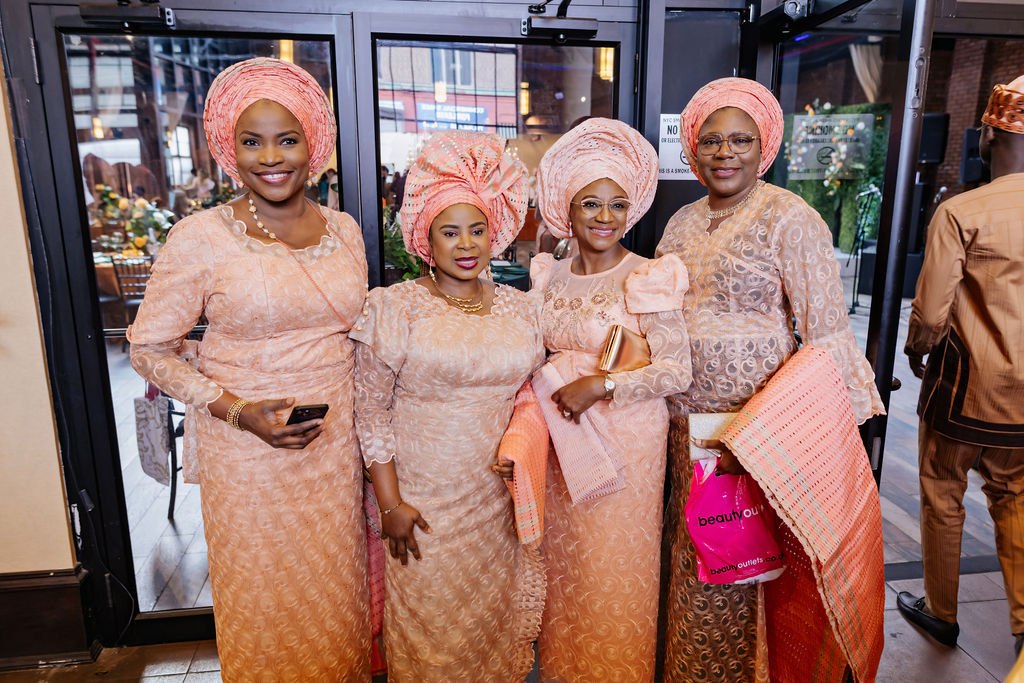
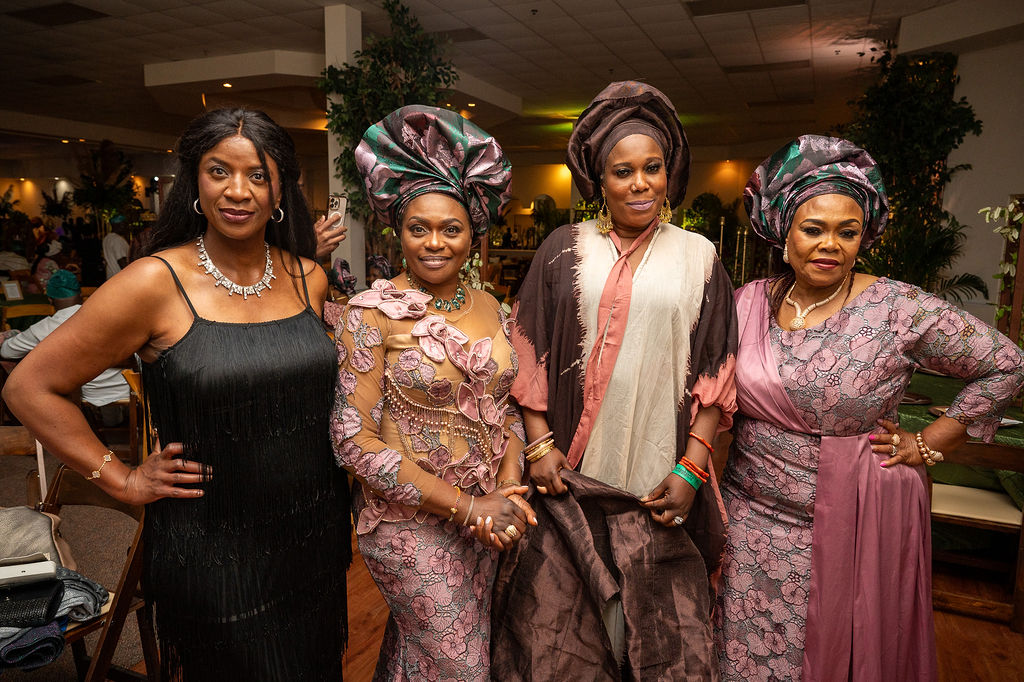
Nigerian wedding guest attire is a beautiful and significant aspect of the celebration. It showcases cultural heritage, honors the couple, and adds to the joyous atmosphere of the event. By carefully selecting and coordinating your outfit, you can participate in this rich tradition and contribute to the overall elegance and unity of the wedding.
Dive deeper into the world of Nigerian weddings and explore topics like the significance of Aso-ebi, the art of money spraying, and how to plan a culturally rich Nigerian-American wedding.
